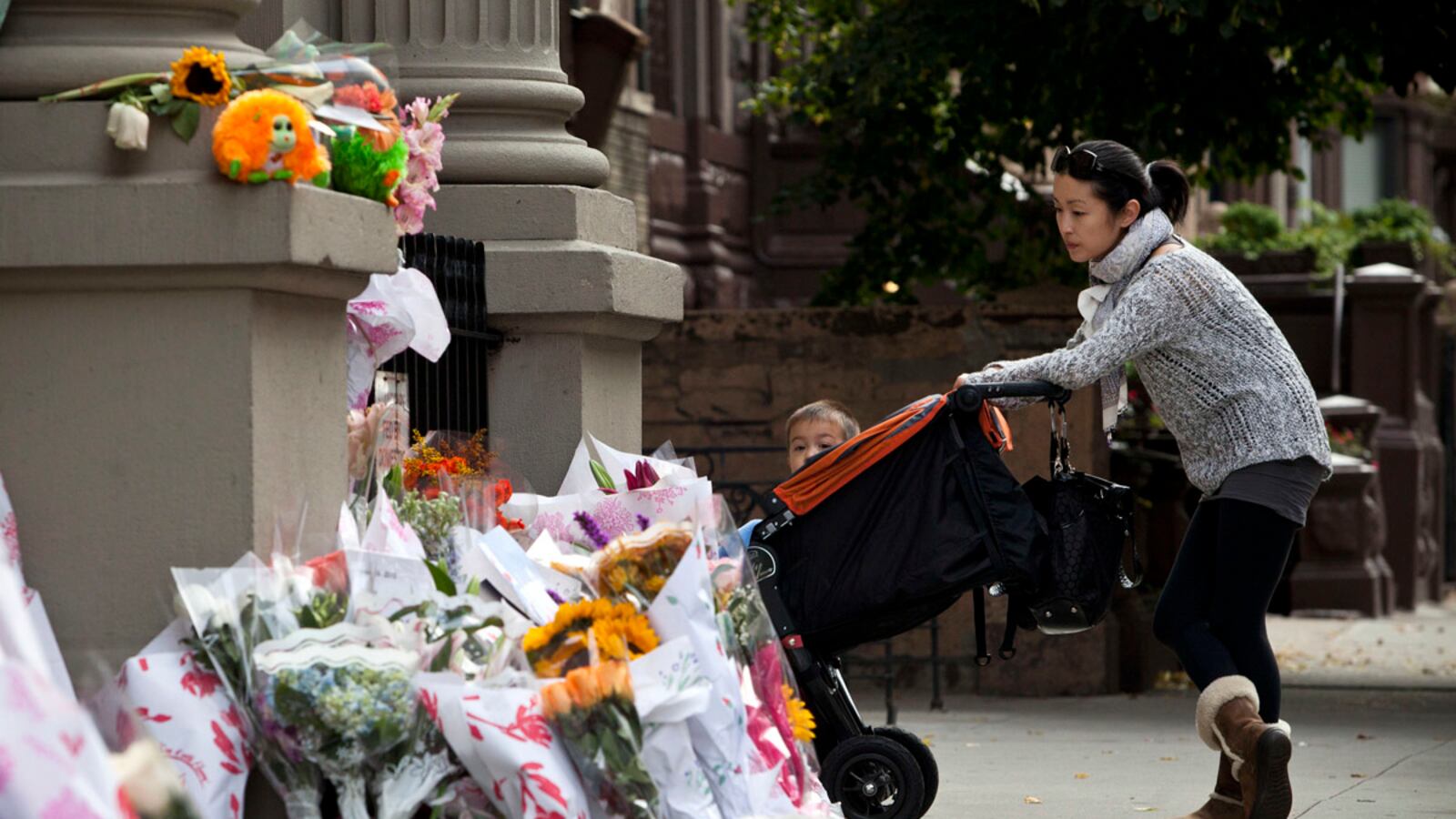Yesterday evening we were standing around a snack table at a Halloween party north of New York when a woman said knowingly of the horrific Krim murders, “This will change everything.” The other guests nodded in hearty agreement. “Everything.”

What exactly, we would like to know, will it change? Will hundreds of thousands of mothers decide en masse to quit their jobs this weekend, lest they place their kids in the care of a newly suspicious caregiver? Or sign up for their neighborhood daycare? (That was sarcastic, of course—Manhattan has only a handful, with 12-month waiting lists.) Will stay-at-home moms suddenly decide they don’t need a few hours a week to see the dentist, spend one-on-one time with children of siblings, or simply get to go to Trader Joe's by themselves?
Nothing will change and nothing should change. This is not a teachable moment. This is a random sickening tragedy. To say that there is something to fix here is, at its heart, blaming the victim. It makes us feel more secure as parents to think that somehow something was missed. If we just stay home with our children around the clock, never sign them up for the Boy Scouts, or altar service, or send them to Horace Mann, they’ll be safe. The stark reality of being a parent is that there are unfathomable dangers everywhere. And unless we home-school, and then encourage our child to live in the yurt we build for them in our yard, at some point we have to put our faith in other people to help us raise them. And there are no words for how wrong it is when that faith is broken.
We did not en masse pull our children out of school after Columbine, or stop taking them to the pediatrician after the arrest of Dr. Earl Bradley.
It’s just as impractical to think that certain communities won’t still be forced to rely on nannies. The vast majority of whom, we can’t believe we have to point out, are as beloved as great teachers or wonderful pediatricians. To think that this act reflects on the profession as a whole just reveals the simmering and deep-seated resentment and distrust that, to our minds, is inconceivable. We felt it when we were doing the work ourselves 20 years ago and we hear it now that we’re mothers and other women complain to us about their help.
Nannies, or daycare employees, are hardly ever given the benefit of the doubt. And employers seem to be expecting that they are somehow being cheated by this wily group of frequently underpaid and undocumented women who, in fact, are showing up to do the most important job for us.
We’re not going to go into how much nannies love their charges, and what it must be like to leave your own children behind in another country to care for someone else’s. We shouldn’t have to. We’re also not going to sell you on honeymooning in Bali, or attending midnight screenings. Because giving them up, or judging people who choose to do those things, wasn’t the lesson. There was no lesson.






